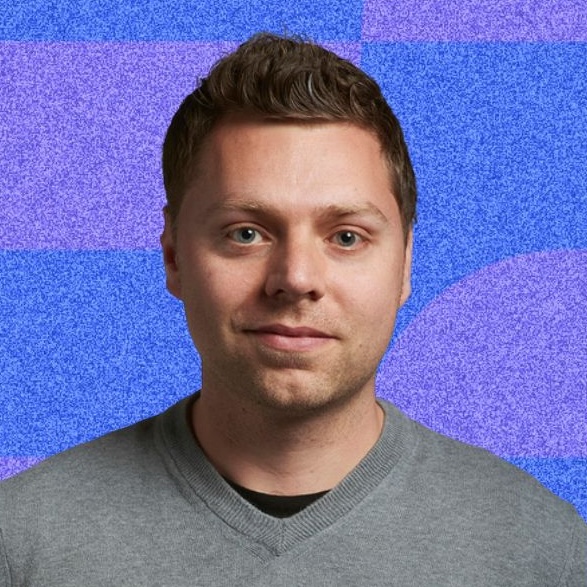The ShortRead: Stephen King's Finders Keepers
The ShortRead: Stephen King's Finders Keepers


Get exclusive shortlists, celebrity interviews and the best deals on the products you care about, straight to your inbox.
You are now subscribed
Your newsletter sign-up was successful
The ShortRead of 10 June

Finders Keepers
Author: Stephen King
What's the story: Stephen who?
We're kidding. The author of 54 novels and close to 200 short stories is showing no signs of drying up any time soon.
Finders Keepers sees King continue to buck his horror roots, reuniting readers with Bill Hodges, the weary detective first encountered in 2014's Mr Mercedes. The story follows a vengeful reader murdering the famed author John Rothstein after his star character appears to sell out. Before the murderer is able to make good on the profits of his crime, he's thrown in jail for another offence, leaving the stash of money and unpublished notes in a buried trunk. Jumping to the present day, Hodges is dragged in to proceedings, searching for unknown benefactors, digging through guarded secrets and attempting to solve a thirty-year-old murder case.
Release date: Out now
Extract
PART 1: BURIED TREASURE
1978
‘Wake up, genius.’
Get exclusive shortlists, celebrity interviews and the best deals on the products you care about, straight to your inbox.
Rothstein didn’t want to wake up. The dream was too good. It featured his first wife months before she became his first wife, seventeen and perfect from head to toe. Naked and shimmering. Both of them naked. He was nineteen, with grease under his finger- nails, but she hadn’t minded that, at least not then, because his head was full of dreams and that was what she cared about. She believed in the dreams even more than he did, and she was right to believe. In this dream she was laughing and reaching for the part of him that was easiest to grab. He tried to go deeper, but then a hand began shaking his shoulder, and the dream popped like a soap bubble.
He was no longer nineteen and living in a two-room New Jersey apartment, he was six months shy of his eightieth birthday and living on a farm in New Hampshire, where his will specified he should be buried. There were men in his bedroom. They were wearing ski masks, one red, one blue, and one canary-yellow. He saw this and tried to believe it was just another dream – the sweet one had slid into a nightmare, as they sometimes did – but then the hand let go of his arm, grabbed his shoulder, and tumbled him onto the floor. He struck his head and cried out.
‘Quit that,’ said the one in the yellow mask. ‘You want to knock him unconscious?’
‘Check it out.’ The one in the red mask pointed. ‘Old fella’s got a woody. Must have been having one hell of a dream.’
Blue Mask, the one who had done the shaking, said, ‘Just a piss hard-on. When they’re that age, nothing else gets em up. My grandfather—’
‘Be quiet,’ Yellow Mask said.‘Nobody cares about your grandfather.’ Although dazed and still wrapped in a fraying curtain of sleep, Rothstein knew he was in trouble here. Two words surfaced in his mind: home invasion. He looked up at the trio that had materialized in his bedroom, his old head aching (there was going to be a huge bruise on the right side, thanks to the blood thinners he took), his heart with its perilously thin walls banging against the left side of his ribcage.They loomed over him, three men with gloves on their hands, wearing plaid fall jackets below those terrifying balaclavas.
Home invaders, and here he was, five miles from town.
Rothstein gathered his thoughts as best he could, banishing sleep and telling himself there was one good thing about this situation: if they didn’t want him to see their faces, they intended to leave him alive.
Maybe.
‘Gentlemen,’ he said.
Mr Yellow laughed and gave him a thumbs-up. ‘Good start, genius.’
Rothstein nodded, as if at a compliment. He glanced at the bedside clock, saw it was quarter past two in the morning, then looked back at Mr Yellow, who might be the leader. ‘I have only a little money, but you’re welcome to it. If you’ll only leave without hurting me.’
The wind gusted, rattling autumn leaves against the west side of the house. Rothstein was aware that the furnace was running for the first time this year. Hadn’t it just been summer?
‘According to our info, you got a lot more than a little.’ This was Mr Red.
‘Hush.’ Mr Yellow extended a hand to Rothstein. ‘Get off the floor, genius.’
Rothstein took the offered hand, got shakily to his feet, then sat on the bed. He was breathing hard, but all too aware (self- awareness had been both a curse and a blessing all his life) of the picture he must make: an old man in flappy blue pajamas, nothing left of his hair but white popcorn puffs above the ears. This was what had become of the writer who, in the year JFK became president, had been on the cover of Time magazine: JOHN ROTHSTEIN, AMERICA’S RECLUSIVE GENIUS.
Wake up, genius.
‘Get your breath,’ Mr Yellow said. He sounded solicitous, but Rothstein did not trust this. ‘Then we’ll go into the living room, where normal people have their discussions. Take your time. Get serene.’
Rothstein breathed slowly and deeply, and his heart quieted a little. He tried to think of Peggy, with her teacup-sized breasts (small but perfect) and her long, smooth legs, but the dream was as gone as Peggy herself, now an old crone living in Paris. On his money. At least Yolande, his second effort at marital bliss, was dead, thus putting an end to the alimony.
Red Mask left the room, and now Rothstein heard rummaging in his study. Something fell over. Drawers were opened and closed. ‘Doing better?’ Mr Yellow asked, and when
Rothstein nodded:
‘Come on, then.’
Rothstein allowed himself to be led into the small living room, escorted by Mr Blue on his left and Mr Yellow on his right. In his study the rummaging went on. Soon Mr Red would open the closet and push back his two jackets and three sweaters, exposing the safe. It was inevitable.
All right. As long as they leave the notebooks, and why would they take them? Thugs like these are only interested in money. They probably can’t even read anything more challenging than the letters in Penthouse.
Only he wasn’t sure about the man in the yellow mask. That one sounded educated.
All the lamps were on in the living room, and the shades weren’t drawn. Wakeful neighbors might have wondered what was going on in the old writer’s house . . . if he had neighbors. The closest ones were two miles away, on the main highway. He had no friends, no visitors. The occasional salesman was sent packing. Rothstein was just that peculiar old fella. The retired writer. The hermit. He paid his taxes and was left alone.
Blue and Yellow led him to the easy chair facing the seldom-watched TV, and when he didn’t immediately sit, Mr Blue pushed him into it.
‘Easy!’ Yellow said sharply, and Blue stepped back a bit, muttering. Mr Yellow was the one in charge, all right. Mr Yellow was the wheeldog.
He bent over Rothstein, hands on the knees of his corduroys. ‘Do you want a little splash of something to settle you?’
‘If you mean alcohol, I quit twenty years ago. Doctor’s orders.’ ‘Good for you. Go to meetings?’
‘I wasn’t an alcoholic,’ Rothstein said, nettled. Crazy to be nettled in such a situation . . . or was it? Who knew how one was supposed to react after being yanked out of bed in the middle of the night by men in colorful ski masks? He wondered how he might write such a scene and had no idea; he did not write about situations like this. ‘People assume any twentieth-century white male writer must be an alcoholic.’
‘All right, all right,’ Mr Yellow said. It was as if he were placating a grumpy child. ‘Water?’
‘No, thank you. What I want is for you three to leave, so I’m going to be honest with you.’ He wondered if Mr Yellow understood the most basic rule of human discourse: when someone says they’re going to be honest with you, they are in most cases preparing to lie faster than a horse can trot. ‘My wallet is on the dresser in the bedroom. There’s a little over eighty dollars in it. There’s a ceramic teapot on the mantel . . .’
He pointed. Mr Blue turned to look, but Mr Yellow did not. Mr Yellow continued to study Rothstein, the eyes behind the mask almost amused. It’s not working, Rothstein thought, but he persevered. Now that he was awake, he was pissed off as well as scared, although he knew he’d do well not to show that.
‘It’s where I keep the housekeeping money. Fifty or sixty dollars. That’s all there is in the house. Take it and go.’
‘Fucking liar,’ Mr Blue said. ‘You got a lot more than that, guy. We know. Believe me.’
As if this were a stage play and that line his cue, Mr Red yelled from the study. ‘Bingo! Found a safe! Big one!’
Rothstein had known the man in the red mask would find it, but his heart sank anyway. Stupid to keep cash, there was no reason for it other than his dislike of credit cards and checks and stocks and instruments of transfer, all the tempting chains that tied people to America’s overwhelming and ultimately destructive debt-and- spend machine. But the cash might be his salvation. Cash could be replaced. The notebooks, over a hundred and fifty of them, could not.
‘Now the combo,’ said Mr Blue. He snapped his gloved fingers. ‘Give it up.’
Rothstein was almost angry enough to refuse, according to Yolande anger had been his lifelong default position (‘Probably even in your goddam cradle,’ she had said), but he was also tired and frightened. If he balked, they’d beat it out of him. He might even have another heart attack, and one more would almost certainly finish him.
‘If I give you the combination to the safe, will you take the money inside and go?’
‘Mr Rothstein,’ Mr Yellow said with a kindliness that seemed genuine (and thus grotesque), ‘you’re in no position to bargain. Freddy, go get the bags.’
Rothstein felt a huff of chilly air as Mr Blue, also known as Freddy, went out through the kitchen door. Mr Yellow, meanwhile, was smiling again. Rothstein already detested that smile. Those red lips.
‘Come on, genius – give. Soonest begun, soonest done.’ Rothstein sighed and recited the combination of the Gardall in his study closet. ‘Three left two turns, thirty-one right two turns, eighteen left one turn, ninety-nine right one turn, then back to zero.’
Behind the mask, the red lips spread wider, now showing teeth. ‘I could have guessed that. It’s your birth date.’
As Yellow called the combination to the man in his closet, Rothstein made certain unpleasant deductions. Mr Blue and Mr Red had come for money, and Mr Yellow might take his share, but he didn’t believe money was the primary objective of the man who kept calling him genius. As if to underline this, Mr Blue reappeared, accompanied by another puff of cool outside air. He had four empty duffel bags, two slung over each shoulder.
‘Look,’ Rothstein said to Mr Yellow, catching the man’s eyes and holding them. ‘Don’t. There’s nothing in that safe worth taking except for the money. The rest is just a bunch of random scrib- bling, but it’s important to me.’
From the study Mr Red cried: ‘Holy hopping Jesus, Morrie! We hit the jackpot! Eee-doggies, there’s a ton of cash! Still in the bank envelopes! Dozens of them!’
At least sixty, Rothstein could have said, maybe as many as eighty. With four hundred dollars in each one. From Arnold Abel, my accountant in New York. Jeannie cashes the expense checks and brings back the cash envelopes and I put them in the safe. Only I have few expenses, because Arnold also pays the major bills from New York. I tip Jeanne once in awhile, and the postman at Christmas, but otherwise, I rarely spend the cash. For years this has gone on, and why? Arnold never asks what I use the money for. Maybe he thinks I have an arrangement with a call girl or two. Maybe he thinks I play the ponies at Rockingham.
But here is the funny thing, he could have said to Mr Yellow (also known as Morrie). I have never asked myself. Any more than I’ve asked myself why I keep filling notebook after notebook. Some things just are.
He could have said these things, but kept silent. Not because Mr Yellow wouldn’t understand, but because that knowing red-lipped smile said he just might.
And wouldn’t care.
‘What else is in there?’ MrYellow called. His eyes were still locked on Rothstein’s. ‘Boxes? Manuscript boxes? The size I told you?’
‘Not boxes, notebooks,’ Mr Red reported back. ‘Fuckin safe’s filled with em.’
Mr Yellow smiled, still looking into Rothstein’s eyes.‘Handwritten? That how you do it, genius?’
‘Please,’ Rothstein said.‘Just leave them.That material isn’t meant to be seen. None of it’s ready.’
‘And never will be, that’s what I think. Why, you’re just a great big hoarder.’ The twinkle in those eyes – what Rothstein thought of as an Irish twinkle – was gone now. ‘And hey, it isn’t as if you need to publish anything else, right? Not like there’s any financial imperative. You’ve got royalties from The Runner. And The Runner Sees Action. And The Runner Slows Down. The famous Jimmy Gold trilogy. Never out of print. Taught in college classes all over this great nation of ours. Thanks to a cabal of lit teachers who think you and Saul Bellow hung the moon, you’ve got a captive audience of book-buying undergrads. You’re all set, right? Why take a chance on publishing something that might put a dent in your solid gold reputation? You can hide out here and pretend the rest of the world doesn’t exist.’ Mr Yellow shook his head. ‘My friend, you give a whole new meaning to anal retentive.’
Mr Blue was still lingering in the doorway. ‘What do you want me to do, Morrie?’
‘Get in there with Curtis. Pack everything up. If there isn’t room for all the notebooks in the duffels, look around. Even a cabin rat like him must have at least one suitcase. Don’t waste time counting the money, either. I want to get out of here ASAP.’
‘Okay.’ Mr Blue – Freddy – left.
‘Don’t do this,’ Rothstein said, and was appalled at the tremble in his voice. Sometimes he forgot how old he was, but not tonight.
The one whose name was Morrie leaned toward him, greenish- gray eyes peering through the holes in the yellow mask. ‘I want to know something. If you’re honest, maybe we’ll leave the note- books. Will you be honest with me, genius?’
‘I’ll try,’ Rothstein said. ‘And I never called myself that, you know. It was Time magazine that called me a genius.’
‘But I bet you never wrote a letter of protest.’
Rothstein said nothing. Son of a bitch, he was thinking. Smartass son of a bitch.You won’t leave anything, will you? It doesn’t matter what I say.
‘Here’s what I want to know – why in God’s name couldn’t you leave Jimmy Gold alone? Why did you have to push his face down in the dirt like you did?’
The question was so unexpected that at first Rothstein had no idea what Morrie was talking about, even though Jimmy Gold was his most famous character, the one he would be remembered for (assuming he was remembered for anything). The same Time cover story that had referred to Rothstein as a genius had called Jimmy Gold ‘an American icon of despair in a land of plenty.’ Pretty much horseshit, but it had sold books.
‘If you mean I should have stopped with The Runner, you’re not alone.’ But almost, he could have added. The Runner Sees Action had solidified his reputation as an important American writer, and The Runner Slows Down had been the capstone of his career: critical bouquets up the wazoo, on the New York Times bestseller list for sixty-two weeks. National Book Award, too – not that he had appeared in person to accept it. ‘The Iliad of postwar America,’ the citation had called it, meaning not just the last one but the trilogy as a whole.
‘I’m not saying you should have stopped with The Runner,’ Morrie said. ‘The Runner Sees Action was just as good, maybe even better.They were true. It was the last one. Man, what a crap carnival. Advertising? I mean, advertising?’
Mr Yellow then did something that tightened Rothstein’s throat and turned his belly to lead. Slowly, almost reflectively, he stripped off his yellow balaclava, revealing a young man of classic Boston Irish countenance: red hair, greenish eyes, pasty-white skin that would always burn and never tan. Plus those weird red lips.
‘House in the suburbs? Ford sedan in the driveway? Wife and two little kiddies? Everybody sells out, is that what you were trying to say? Everybody eats the poison?’
‘In the notebooks . . .’
There were two more Jimmy Gold novels in the notebooks, that was what he wanted to say, ones that completed the circle. In the first of them, Jimmy comes to see the hollowness of his suburban life and leaves his family, his job, and his comfy Connecticut home. He leaves on foot, with nothing but a knapsack and the clothes on his back. He becomes an older version of the kid who dropped out of school, rejected his materialistic family, and decided to join the army after a booze-filled weekend spent wandering in New York City.
‘In the notebooks what?’ Morrie asked. ‘Come on, genius, speak. Tell me why you had to knock him down and step on the back of his head.’
In The Runner Goes West he becomes himself again, Rothstein wanted to say. His essential self. Only now Mr Yellow had shown his face, and he was removing a pistol from the right front pocket of his plaid jacket. He looked sorrowful.
‘You created one of the greatest characters in American literature, then shit on him,’ Morrie said. ‘A man who could do that doesn’t deserve to live.’
The anger roared back like a sweet surprise. ‘If you think that,’ John Rothstein said, ‘you never understood a word I wrote.’
Morrie pointed the pistol. The muzzle was a black eye. Rothstein pointed an arthritis-gnarled finger back, as if it were his own gun, and felt satisfaction when he saw Morrie blink and flinch a little. ‘Don’t give me your dumbass literary criticism. I got a bellyful of that long before you were born.What are you, anyway, twenty-two? Twenty-three? What do you know about life, let alone literature?’
‘Enough to know not everyone sells out.’ Rothstein was astounded to see tears swimming in those Irish eyes. ‘Don’t lecture me about life, not after spending the last twenty years hiding away from the world like a rat in a hole.’
This old criticism – how dare you leave the Fame Table? – sparked Rothstein’s anger into full-blown rage – the sort of glass-throwing, furniture-smashing rage both Peggy and Yolande would have recognized – and he was glad. Better to die raging than to do so cringing and begging.
‘How will you turn my work into cash? Have you thought of that? I assume you have. I assume you know that you might as well try to sell a stolen Hemingway notebook, or a Picasso painting. But your friends aren’t as educated as you are, are they? I can tell by the way they speak. Do they know what you know? I’m sure they don’t. But you sold them a bill of goods. You showed them a large pie in the sky and told them they could each have a slice. I think you’re capable of that. I think you have a lake of words at your disposal. But I believe it’s a shallow lake.’
‘Shut up. You sound like my mother.’
‘You’re a common thief, my friend. And how stupid to steal what you can never sell.’
‘Shut up, genius, I’m warning you.’
Rothstein thought, And if he pulls the trigger? No more pills. No more regrets about the past, and the litter of broken relationships along the way like so many cracked-up cars. No more obsessive writing, either, accumulating notebook after notebook like little piles of rabbit turds scattered along a woodland trail. A bullet in the head would not be so bad, maybe. Better than cancer or Alzheimer’s, that prime horror of anyone who has spent his life making a living by his wits. Of course there would be headlines, and I’d gotten plenty of those even before that damned Time story . . . but if he pulls the trigger, I won’t have to read them.
‘You’re stupid,’ Rothstein said. All at once he was in a kind of ecstasy. ‘You think you’re smarter than those other two, but you’re not. At least they understand that cash can be spent.’ He leaned forward, staring at that pale, freckle-spattered face.‘You know what, kid? It’s guys like you who give reading a bad name.’
‘Last warning,’ Morrie said.
‘Fuck your warning. And fuck your mother. Either shoot me or get out of my house.’
Morris Bellamy shot him.
Extract taken from FINDERS KEEPERS by Stephen King, published in hardcover at £20.00 by Hodder & Stoughton
For more excellent reads, check out our previous choices below - just click on the link:
Instrumental by James Rhodes
Natural Born Heroes by Christopher McDougall
The Killing of Bobbi Lomax by Cal Moriarty
A God in Ruins by Kate Atkinson
The Wrong Girl by David Hewson
The 3rd Woman by Jonathan Freedland
Pleasantville by Attica Locke
The Road Beneath My Feet by Frank TurnerSo you've been publicly shamed by Jon Ronson
The A to Z of you and me by James Hannah
Cycling Climbs by Claire Beaumont & Nigel Peake
Beyond the Horizon by Ryan Ireland
Mainlander by Will Smith
Second Life by S J Watson
Trigger Warning by Neil Gaiman
The Kind Worth Killing by Peter Swanson
The Harlem Hellfighters by Max Brooks
The Winter War by Philip Teir
The missing and the dead by Stuart MacBride
The Strange Library by Haruki Murakami
The ShortReads of 2014
(Images: Flickr/Kate Hiscock; Rex)

As Content Director of Shortlist, Marc likes nothing more than to compile endless lists of an evening by candlelight. He started out life as a movie writer for numerous (now defunct) magazines and soon found himself online - editing a gaggle of gadget sites, including TechRadar, Digital Camera World and Tom's Guide UK. At Shortlist you'll find him mostly writing about movies and tech, so no change there then.